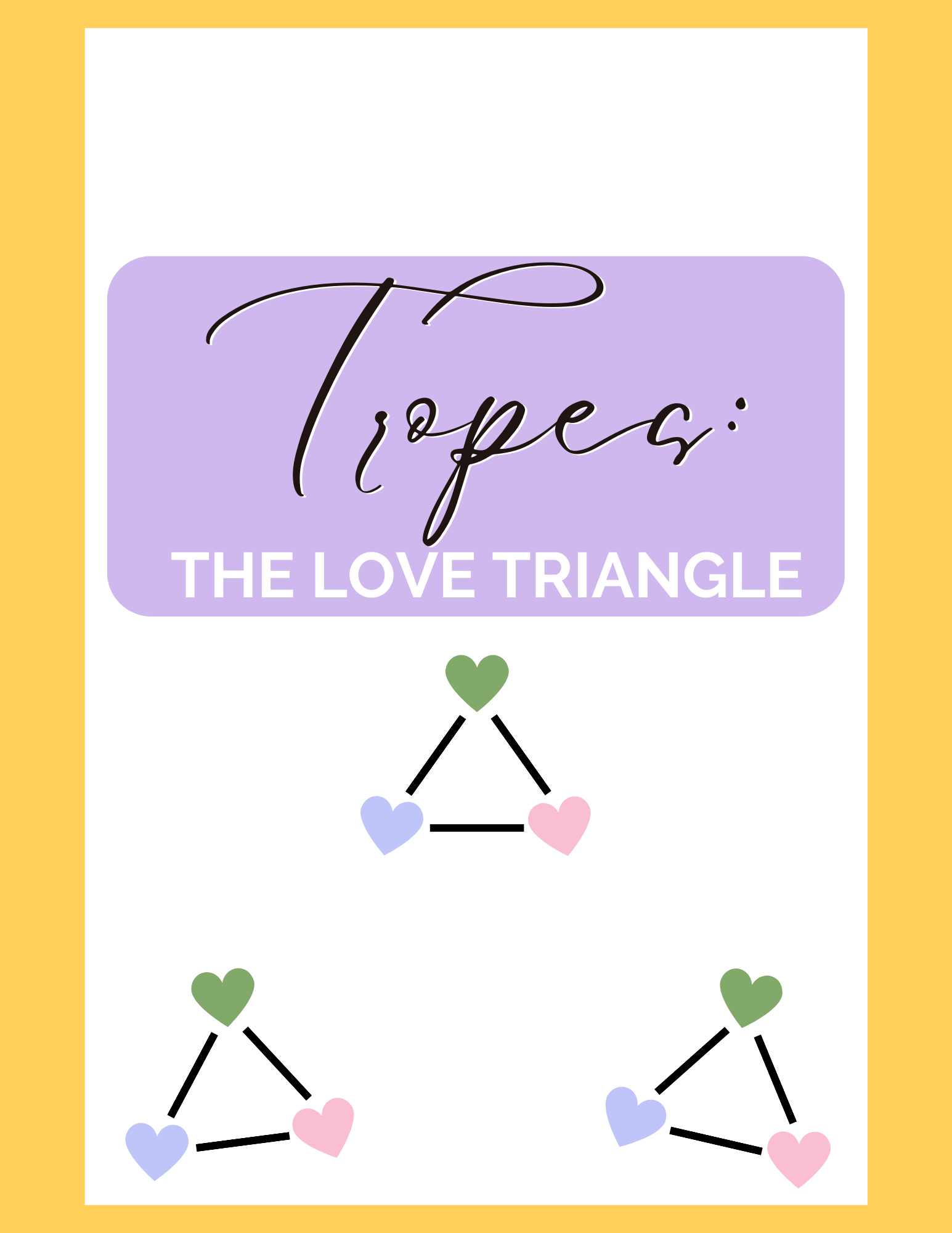The FMC Archetypes: The Damsel
The next FMC archetype to step under our spotlight is increasingly hard to find in modern-day media. She still exists, but with each passing year, she strays farther and farther from the roles allotted to her ancestors.
Tropes: The Love Triangle
Since the dawn of time (my teenage years), there is one trope that can be counted on to generate buzz among passionate people. (I was going to say young adults here, but I found that to be exclusive of people like me who are very opinionated and often convinced they are correct.) The love triangle will always be a tried and true classic of the romance genre.
The FMC Archetypes: The Nerd
It's been a while since we explored one of the eight classic FMC archetypes. With a new Mean Girls movie hitting theaters across the globe, we figured it was a fitting time to shine a spotlight on The Nerd. After all, would "mean girls” even exist without them?
Tropes: Grumpy / Sunshine
Opposites attract. While the previous sentence may not be true for all human beings, the phenomenon happened often enough for the saying to become a cliche. It still pops up in romantic comedies from time to time, usually in the form of a loving jibe or tell-tell remark from a quirky or mysterious supporting character. These days, it is more often implied than said aloud. Many different pairings illustrate this trope, but the most common and beloved is a couple we have come to define as grumpy/sunshine.
Tropes: Friends-To-Lovers
Romantic tropes exist on a realism scale that varies by individual. While we may love a particular scenario with all our heart, we know we will never fall for it in the real world. For instance, the closest my soul, mind and overall attitude will ever allow me to come to an enemies-to-lovers arc is eating my words concerning fictional men as they develop over multiple television show seasons (Hello, Jamie Tartt). Because, as my friend Geneva so gracefully put it, once I decide I hate a man, that door is closed, bolted, and barred, never to be opened again. However, one trope in particular is universally regarded as one of the most realistic: the antithesis of the beloved E-T-L, Friends-To-Lovers.
The FMC Archetypes: The Femme Fatale
A hot minute has passed since I dove into one of the eight FMC archetypes. Previously, I covered the kind, caring and charismatic Girl Next Door. Next, I will focus on a character who usually serves as her antithesis. In direct contrast to the "desirable" traits of the GND, the Femme Fatale's overt self-confidence and resolve made it easy for her to be branded a story's villain.
Tropes: Only One Bed
If you consume romantic media in any way, shape or form, you are likely familiar with the tropes often found within it. Those specific plot devices, scenarios or settings that an audience encounters again and again and yet somehow of which they never grow tired. Every viewer has their favorite, the one that makes them instantly swoon, hold their breath in anticipation or wipe tears from their eyes. Some of the more experienced consumers even have tropes with which they outright refuse to engage. Who can blame them? With instances as commonplace as these, it is easy to be burned.
The FMC Archetypes: The Girl Next Door
I know the millennials reading this (and perhaps those in Gen Z as well since Buzzfeed still seems to be thriving) are no strangers to personality tests. Many we took were sanctioned by our schools or current employers, giving us brief identifiers that summarized our personalities and allowed us to be grouped with like-minded or counter-thinking individuals. I, for instance, am an ENFJ or a 3x2 enneagram type. Others were less official. They consisted of the many "Which character are you?" quizzes found in Tigerbeat, J-14, and Cosmogirl or hosted on websites such as Quizilla, Playbuzz or, later in the game, Buzzfeed, as previously mentioned. Growing up, if I liked a TV show or book, I carved outside validation to prove I was most similar to the character I liked best. In some ways, I still do. But, as an adult, I'm much better at relating my strengths and weaknesses to the fictional women in my life and owning the result, even if it's not entirely complimentary.







